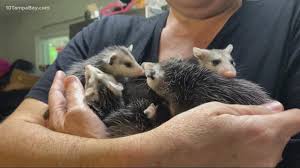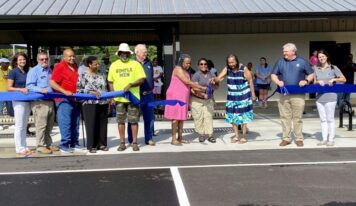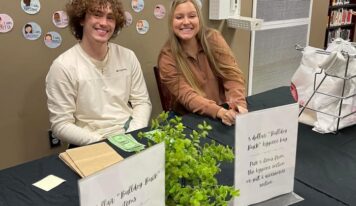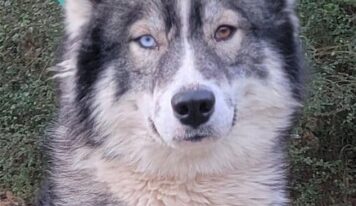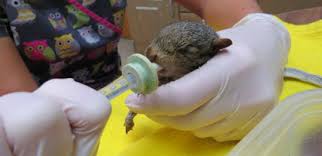
Humane Society of Elmore County News
Spring is a time of new beginnings and with that comes lots of wildlife babies. Wildlife moms and babies face many challenges and sometimes natural events result in orphaned wildlife. This time of year we start fielding increased calls for what to do with orphaned wildlife babies, or injured wildlife so here is what you need to know.
First – NO traditional animal shelter or rescue in Alabama (as in takes in primarily dogs & cats) is allowed to take in wildlife so please do not take wildlife to your local Shelter. All wildlife rehabilitators in Alabama must be licensed by the Alabama Department of Conservation, Division of Wildlife and Freshwater Fisheries and “dog/cat” shelters are not built, staffed or equipped to handle wildlife. This means the best that we can do is to give callers contact information for currently licensed wildlife rehabilitators.
So, how many wildlife rehab facilities are there in Alabama? Currently there are only nine licensed wildlife rehabilitation facilities/individuals in Alabama. It is also important to know that these rehabilitators are licensed for very specific species/circumstances so you have to consult the list on www.outdooralabama.com to see where a certain species might be able to go.
The direct link for the rehabber list is: https://www.outdooralabama.com/wildlife-rehabilitation/current-wildlife-rehabbers
Especially for our area you will find that rehab facilities for the most frequent calls (squirrels, possums, raptors) are no where close. These facilities/individuals also do not come and get the animal in need so you will have to be able to transport it to them. And then there will be times that the facility or rehab person in question is simply full up and won’t be able to help. We have been told that currently the Auburn Raptor center is closed to intake due to Avian Influenza concerns that could endanger their existing population. From Outdoor Alabama: “AVIAN INFLUENZA has been detected in Alabama. The public should avoid contact with any dead or dying bird. If contact occurs, wash your hands with soap and water and change clothing before having any contact with domestic poultry and other birds. Please call (334) 242-3469 to report dead or dying birds for potential collection and disease testing.”
Further, virtually all native birds are federally protected which places even more regulations on who can help them, so again – only those listed as licensed are allowed to help.
What this all means is that there may be times when there is simply no one to help and we realize that is sad to say. From the AL Department of Conservation & Natural Resources “It is always best to leave wildlife where it was found and trust that your intervention is not required. Human interference and involvement often causes more harm than good and should be avoided. In most cases, rescue is not required. In almost all instances, the best thing to do is to leave the animal alone. Most young wildlife that are alone are not orphans at all. Birds and mammals are left alone by their parents for long periods of time even when they are very young. When given the chance to remain undisturbed, the parents will typically return.”
For questions about whether or not wildlife is truly in need of assistance, how to capture for transport to a rehabilitator, or to inquire about wildlife rehabilitation in general, call: 334-242-3469, email: DCNR.wildliferehabilitation@dcnr.alabama.gov
or go to https://www.outdooralabama.com/wildlife/wildlife-rehabilitation


